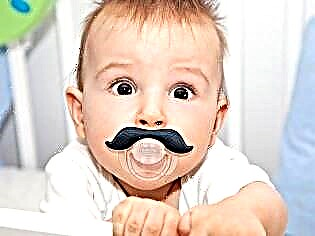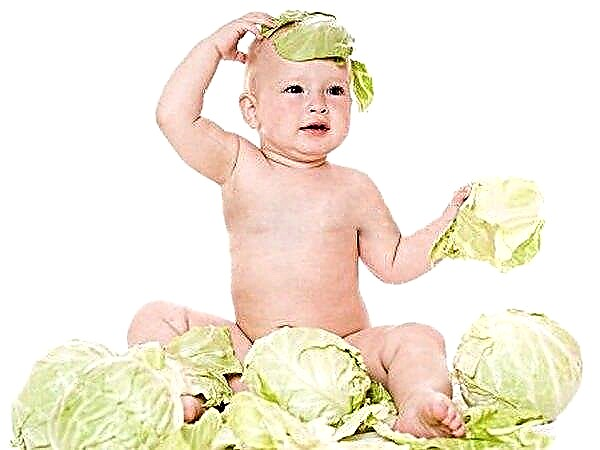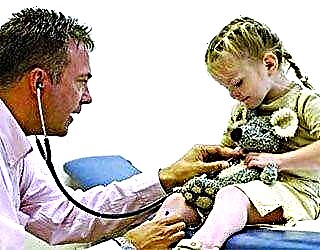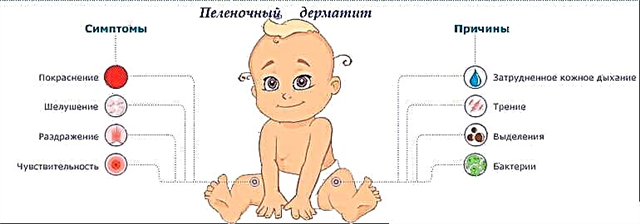
Not a single trifle sometimes causes such heated discussions within the same family as the most common nipple - a pacifier. Mom, for example, does not see anything wrong with her, and the grandmother desperately protests and insists that the nipple is incredibly harmful to the baby's bite. Dad takes a neutral position, but only until the moment when the baby begins to yell.
And how much trouble the loss of a pacifier is, if the child is already used to it! Parents are ready to run to the pharmacy in the middle of the night for a new one, if only the child calms down. The well-known pediatrician Yevgeny Komarovsky tells whether such a nipple is needed for a child, how to wean him from it in time, and is there any harm from the fact that the baby sucks a pacifier.

"Pros and cons"
If the pacifier is not given in principle, then the baby will most likely begin to suck his thumb as soon as he can reach his mouth. This is an unsatisfied sucking reflex that absolutely all newborns have, and which passes on their own at a certain age. The child does not suck his thumb because he wants to, and not at all out of boredom. This is an instinct, and fighting it is completely useless, says Evgeny Komarovsky.
If you choose between a finger and a nipple, then Komarovsky says that the nipple is more optimal. Its harm is greatly exaggerated, but the benefits are undeniable, because it:
helps to satisfy the sucking reflex;
calms the child, puts him to sleep;
stimulates intestinal peristalsis, develops facial muscles.


There is no consensus on the dangers and benefits of nipples in pediatrics. Some doctors say that it is harmful, others recommend giving it to the little one. One thing is for sure, says Yevgeny Komarovsky: you need to listen to the child himself. If he wants to suck, let him suck. If he spits out a pacifier, don't insist. It is not a good idea to specially teach it at 2 months, at 3 months or later, when the teeth begin to erupt.

If the dummy solves some specific problems of the child, there is nothing wrong with it, but if the nipple itself turns into a problem, you need to try to part with it or endure. So, many children at 5-7 months, when falling asleep, "lose" the nipple or take it out of their mouth, and then get scared and start screaming at night until relatives come to their aid and return the pacifier back. In that situation, only the parents themselves need to evaluate the pros and cons and decide what is easier for them to survive - a cry without a dummy for several nights or an episodic cry because of a dummy, which will pass when the baby realizes that it is not necessary to touch it with his hands.


Often mothers are afraid: when the time comes to separate the baby from the nipple, his psyche will begin to suffer from this.
This is not true, the doctor is sure, weaning of a pacifier does not entail any disturbances in mental and emotional development. Such information is disseminated by not very literate and knowledgeable people.
Another argument of opponents of the nipple is a decrease in lactation. They say that a child, having sucked enough of a pacifier, will eat less mother's milk, and her milk production will be expected to decrease. Komarovsky advises not to panic, but to rely only on facts: if the baby grows well, gains weight normally, you don't have to worry about the fact that he didn't finish eating something because of the nipple.
If there are signs of malnutrition, low weight, other symptoms of physical retardation, you need to find the cause, and it is unlikely that it will be a nipple. Sucking while eating is determined by such an instinct as hunger, and sucking on a pacifier is the satisfaction of another instinct, sucking.


How to choose the "right" dummy
Today, a huge selection of pacifiers is presented on the shelves of pharmacies and children's stores. There are silicone and latex, with and without rings, large and small. Parents, especially those without experience in the selection of such items, find it difficult to understand which dummy is considered "correct".
Evgeny Komarovsky claims that a correctly selected nipple affects the bite to a lesser extent.
Normally, at the time of sucking, a significant load on the uvula should be created in a child, and the perioral and facial muscles should also work well. The lower jaw, which is smaller than the upper jaw at birth, with the help of such "training" grows more intensively and by six months catches up with the upper jaw. When choosing a nipple, you need to understand that it should be as similar as possible to a female nipple, that is, physiologically adapted.
Latex pacifiers are yellow, silicone pacifiers are white. Both those and others serve for a long time, unlike the rubber ones that were used by our grandmothers when they were little. However, silicone is better to tolerate repeated boiling and does not cause an allergic reaction.
Among all the variety, Komarovsky recommends giving preference to silicone pacifiers that have an anatomical or orthodontic shape and are appropriate in size for the age of the child. "One" in size is the age of up to six months, and "two" - after six months. There is also a "troika" - after a year and a half. Foreign manufacturers denote these sizes, respectively, with the letters of the Latin alphabet - A, B, C.
It is better if the chosen nipple does not have a bulky base and collapsible parts so that the child does not accidentally choke on the spare parts from the pacifier.
When the first teeth come out, it is better to change the silicone nipple to a latex one - it is softer and will not deform the teeth. The latex pacifier should be changed about once every month and a half, as it is less suitable for boiling and wears out faster.
Dummy and bite
The favorite argument of all opponents of the nipple is the bite. Yes, the dummy affects him, says Yevgeny Komarovsky. But she is not alone. Much to a greater extent, this is influenced by metabolism (how much the child receives and how it absorbs calcium, phosphorus), is there enough vitamin D in his body.
If the child is "artificial", and in his life deals only with the nipples, then this increases the load on the jaw. If he also sucks the mother's breast, and then continues to satisfy his sucking reflex with the help of a pacifier, then there are other risks of changing the bite.

When the baby acquires teeth, the amount and quality of solid food that the baby will receive affects the bite condition.
In addition, a lot of information about what shape the jaw will be, as well as how the upper and lower ones will be located in relation to each other, is contained in the genetic code, that is, laid down in the child even before his birth.
Thus, it is impossible to draw a parallel - a dummy - an incorrect bite. Not a single doctor has yet been able to prove and argue that this is not so. Therefore, the danger is rather theoretical.

How to wean a baby from a pacifier?
Weaning from sucking a pacifier is troublesome and, most importantly, pointless, says Evgeny Olegovich. In some children, the sucking reflex is strong and stable from birth, in others it is weaker. Second babies, as a rule, spit out the nipple that has become unnecessary faster. And babies with a very persistent reflex may require a dummy at both 2 and 3 years old. However, no one has yet gone to school at the age of 6-7 with a "pipe" in their mouth, says the doctor, and therefore there is nothing to worry about.

The problem of prolonged sucking on a pacifier is not a problem for the child, not a disease, not a bad habit - this is his need, but an absolute problem for the whole family. Mom and grandmother so want the baby to grow up sooner. Refusal of the nipple, in the understanding of most parents, this is one of the steps to growing up, like the first step, the first itch, the first word. And if the child does not want to part with the dummy, then there is no need to mock him. His time, says Komarovsky, has not yet come.
The algorithm of the parents' actions should be as follows:
We tried to hide the dummy. If he screams and cannot sleep during the day, no need to experiment anymore. The attempt is repeated six months later.
If your baby is already doing well without a pacifier during the day, you can try giving him a light, plant-based sedative before bed. It is possible that he will not need a nipple to fall asleep. But if the requirements remain in place, then give the pacifier and return to trying to separate the child from it after about six months.
The methods that parents will practice in the weaning process may be different, but none of them has anything to do with medicine.
According to Komarovsky, pediatrics does not know a single pill or ointment that will cure nipple cravings. We'll have to experiment with pedagogical methods - persuasion, exhortations, "talking teeth", all kinds of distracting maneuvers.
If it doesn't work, you can use your grandmother's recipe and smear the nipple with some kind of "rubbish" like mustard. The main thing here is not to cause problems with the esophagus, burns to the oral cavity.

You will learn more about when a baby needs a pacifier in the following video.



